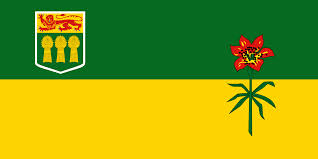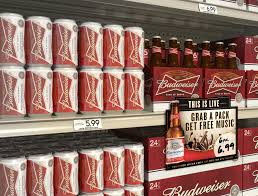 On Monday night Saskatchewan voters handily re-elected Brad Wall’s Saskatchewan Party with a majority government. Part of Mr. Wall’s platform addressed the issue of liquor retail privatization. Specifically their platform promised this:
On Monday night Saskatchewan voters handily re-elected Brad Wall’s Saskatchewan Party with a majority government. Part of Mr. Wall’s platform addressed the issue of liquor retail privatization. Specifically their platform promised this:
“Convert 40 government-owned liquor stores to private stores and add 12 new private liquor
stores in Saskatchewan to provide more choice, more convenience and more competitive pricing to
Saskatchewan consumers.”
If they follow through on this province, that would mean more than half of the current 75 SLGA outlets will be privatized and the number of private stores would quadrupel. It would create an odd hybrid system of public and private retail that I have a hard time believing will be sustainable over the longer term. My suspicion is that this is an initial step and full privatization will follow in a couple of years.
As a resident of the only province that has a wholly privatized system (remember, Quebec still has their government SAQ stores), I would like to say to Saskatchewanians: “be careful what you ask for”.
On the surface, retail privatization seems like a clear winner for both consumers and producers. However, there are many devils in the details and the Wall government has so far offered very few. Even their so-called Green Paper last fall was woefully short on how the system would work. The end result is far more complex.
We will know more in the coming months, but for now here are a few thoughts that Saskatchewan residents should consider before rushing to cheer private retail:
- Privatization in Alberta led to increased beer prices. Alberta now has among the highest prices for beer in the country.
- Be careful about promises of “more choice” and “greater selection”. Yes, Alberta has a proliferation of liquor stores and the highest number of SKUs (product identifiers) in the country. However, scratch a little deeper and you find it is a superficial selection. The bulk of stores are small mom and pop operations that carry the same basic selection as the next guy. There are only a handful of stores that offer a wide selection. Plus, a large portion of those SKUs are multiple packaging formats of the same corporate product.
One of the biggest questions will be how does privatization affect Saskatchewan’s policy on beer imports? Right now the SLGA decides who gets to sell in the province, and they keep a tight lid on the number of imports. Will there be pressure to create open borders like Alberta has? If so, how will that intensified competition affect local producers? (Ask Alberta breweries how they feel about that.)
- Similarly, will local producers get to self-distribute, or will they be required to go through the SLGA warehouse?
- Will private retailers be required to stock a certain number of local products? That is one of the (potential) strengths of government stores – they can promote local beer.
- There is potential for a huge urban-rural divide. Private retailers (especially those offering decent selection) will want to operate in Regina and Saskatoon, where the profits are. What happens to rural consumers?
- Finally – and I realize it is not strictly beer-related – what of the 400 or so jobs that will be eliminated due to privatization? Sure, new jobs would spring up in the private stores, but no one can seriously compare the two in terms of permitting people to provide for their family.
My biggest worry is the move’s impact on Saskatchewan’s local breweries. The province has seen quite the mini-boom in the last couple years of new, small craft brewery operations. It is a very encouraging trend. However, it is also at a very formative and delicate stage. Most of the new players are not yet fully anchored in the market, and most are still in the “raising awareness” stage. A rapid and uncontrolled influx of imports from around Canada and the world will create a seismic shift in the competitive environment for those new breweries.
Obviously I don’t know what will happen, but neither does the Wall government. Once you unleash market forces, you can never really tell where they are going to push and who is going to get blown over as a result.
The election might be over and everyone wants to go back to normal, but I would advise Saskatchewan beer drinkers to keep paying attention over the next few months. Decisions the government makes in the coming period will have profound impact on the shape of Saskatchewan’s craft beer industry for a long time to come.
I, for one, plan to keep a close eye on developments next door.


April 7, 2016 at 2:59 PM
I believe that the new growler regs in SK require local content. Hopefully all of the privatization will do the same to support local beer over and prevent the kind of import invasion that has kept a boot on the neck of the Alberta brewing scene (said the evil evil man who wants to limit selection of imported beer for all beer drinkers everywhere and to prop up substandard local breweries who aren’t nearly as famous on RateBeer and therefore are not worth drinking (Thought I would get the trolling out of the way ahead of time)).
April 7, 2016 at 5:10 PM
I think the Ma and Pa stores have more to offer than what your saying, they do offer more selection of craft beers and cheaper then the chain liquor stores. They also offer a personalized experience of a familiar face that knows your taste. Many independent stores have a much much bigger offering of local and outside province/country beers, that also don’t sit on the shelves for months on end to become expired.
As for privatization, TAX in Alberta has increased prices, not independent owners, and agencies have had to increase their prices and a lot of stores have had to eat the cost to keep customers coming.
April 7, 2016 at 11:12 PM
Jeff,
Thanks for the comment. I didn’t mean to disparage mom and pop shops. I agree many try to offer a selection that fits for their clientele. However, they do have limited shelf space, by definition, and so can only offer so much. If a consumer wants the panacea of beer selection, there are only a few offerings to give it to them.
And to be clear, taxes is not the issue. Beer prices have been the highest for years – long before the recent policy changes. The issue is the inclusion of middle men and the profit motive. Everyone along the path takes their cut. I am not dissing their attempts to do so, it is just part of the system. Privatization creates more levels of players, all needing their take. Taxes is not the issue.
Thanks for commenting.